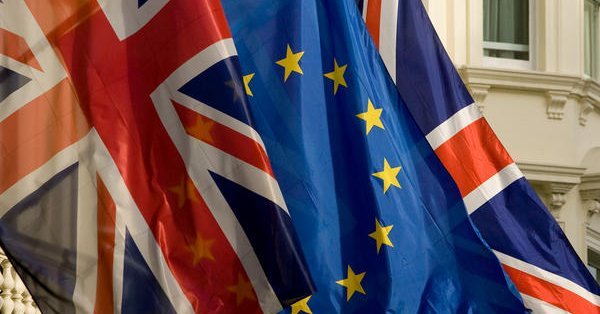Tabloids creating a climate of fear about Europe
The role of tabloids cannot be avoided in the UK, where the Sun – Murdoch’s tabloid – is the most sold newspaper. One third of adults in the UK reads tabloids, thus they have a major role in political agenda-setting. In addition, scandals revealed that Murdoch was effectively backing politicians that would support his business interests. Under Blair’s government, Murdoch was said to be the 21st member of the Cabinet. The Sun and other tabloids also have an indirect influence in creating a climate of fear. According to Oliver Daddow, politicians fear to speak more about Europe because of what tabloids can say about them. Indeed, tabloids have a strong influence on public opinion and on political agenda–setting as well.
Their articles are not informative about the EU but rather take a stance. You can easily find confusion between the European Court of Justice (in Luxembourg, an EU body) and the European Court of Human Rights (in Strasbourg, a body of the Council of Europe). One article showed a picture of the European Parliament in Brussels explaining that the European summit (a meeting of Heads of States and Governments) was to occur in it. Such error and confusion are just examples of the lack of knowledge about the EU in the UK. It is then really easy to develop ungrounded arguments against the EU by using fear and populism.
Public opinion’s mistrust in politicians pledge for a referendum
Public opinion in the UK is more and more distrustful of politicians, especially after the phone hacking scandal of 2011,and after the revelation of a compromise between Murdoch and Cameron for the latter to pay back Murdoch’s support of the Tories’ campaign. The case of the Peoples’ Pledge is a prime example.
The Peoples’ Pledge is a campaign claiming for an EU referendum. The aim is to gather as many signatures as possible from citizens to pressure Members of Parliament to organise a referendum about the UK’s continued membership in the EU. It claims to be independent of political parties, but at a discussion panel organised on the November 19th, 2012 at King’s College London, panellists in favour of such a referendum were also extremely critical of the EU. Their case is that “no-one in Britain under the age of 55 has had the opportunity to vote on [their] relationship with Europe”. Apart from the formulation of their discourse, which is already anti-European from my point of view, they also argue that having a debate in Britain about the continued membership leading to a referendum is the only way to follow their “passionate belief in democracy”. In the discussion panel mentioned above, comments and questions of the audience showed the strong mistrust of politicians who are perceived as taking the decision away from citizens without taking into account the latter’s interests.
An irrational fear of ‘Brussels’ or a genuine disinterest about the EU?
As in many other European countries, citizens know very little about the EU, how it operates and its achievements to this day. Pupils are not taught much about the EU in school and the education system still operates in a ‘nation-first’ vision of the world. During the school year 2007 – 2008, a bit more than 10,000 British students went studying abroad thank to the Erasmus programme while there were over the 20,000 Spanish students enjoying this program. The figures have increased to reach more the 13,500 British students in 2011 – 2012, but they are still very few who have the chance to discover the continent thanks to Erasmus programme.
Additionally, the UK refuses to take part in the Schengen space; the EU’s notable free-movement of persons, ‘borderless’ area. Therefore, Brits are not enjoying concrete achievements of a borderless EU, which are the most popular on the continent.
Based on this ground, it is really easy for those who are against the UK membership in the EU as it is now to make arguments developing a fear of ‘Brussels’. One of their arguments is that Brussels regulations can limit British sovereignty. They present EU laws as imposed from a centralised government, thus withdrawing power from the British Parliament. Given the importance of the Parliament in the British representation of a proper democracy, they then do not see how they can exert their power on EU decisions,. This reasoning increases feelings of being powerless when facing an over-regulative EU, especially when public opinion is mainly in favour of free-market.
In their pessimistic picture, we shall nonetheless not forget that many British, as many other Europeans just do not care and that many are not interested in EU matters. In the case of a referendum about the continued membership within the EU, these citizens would be prove to be a good battle ground for both camps.
Lack of knowledge, few concrete visible benefits from EU integration and anti-EU membership arguments are strengthening resentment against the EU, but there are also cultural explanations.
Viewing the continent from an island
From the UK, Europe seems very far away; not only because of their use of imperial measurements, them driving on the left-hand side, the own currency and its awkwardly-size coins or the amount of Starbuck coffeehouses but because of the Channel. According to Stephen Tindale, associate fellow at the Centre of European Reform , “hostility to the EU is particularly strong in the UK because the British have always regarded themselves as part of the Anglo-Saxon world rather than ‘Europe’.” In his speech in Zurich in 1946, “Winston Churchill [UK Prime Minister 1940 – 1945 and 1951 – 1955] called for a United States of Europe, but the UK would not, in his view, have been part of this”. Additionally, Tindale argues that it is “partly for historical reasons – the UK had the Empire, won the First and the Second World War”. Today, the Commonwealth – the economic association with former colonies of the Empire – remains in the mind of many. The ‘special relationship’ with the United States also plays an important role. Moreover, many Brits have explained to me that contrarily to France, Belgium the Netherlands, Luxembourg, Poland and the Czech Republic, the UK was not invaded during the Second World War and thus the image of European integration as bringing peace is less strong than on the continent.
Tindale also presents cultural reasons of the distance of the UK from ‘Europe’: “Americans, Canadians, Australians, New Zealanders speak English”. In the UK, “American films and TV shows dominate [while] there are few continental European programmes on UK TV (apart from Scandinavian crime dramas)”.
To conclude, public opinion seems very keen on anti-EU discourses and pro-European voices are nearly inaudible. According to Tindale, it is “partly because the tabloid press, the Murdoch owned serious press (The Times) and the right-of-centre Telegraph are all unenthusiastic about European integration, but, also, partly because those of us who are pro-EU have not been very good at getting the message across about the benefits of membership.” As Jonathan Powell, Dowing Street Chief of Staff under Blair’s premiership puts it “What we managed to do was shift Britain’s position in Europe. What we failed to do was change British opinion about it.”


Follow the comments: |
|
